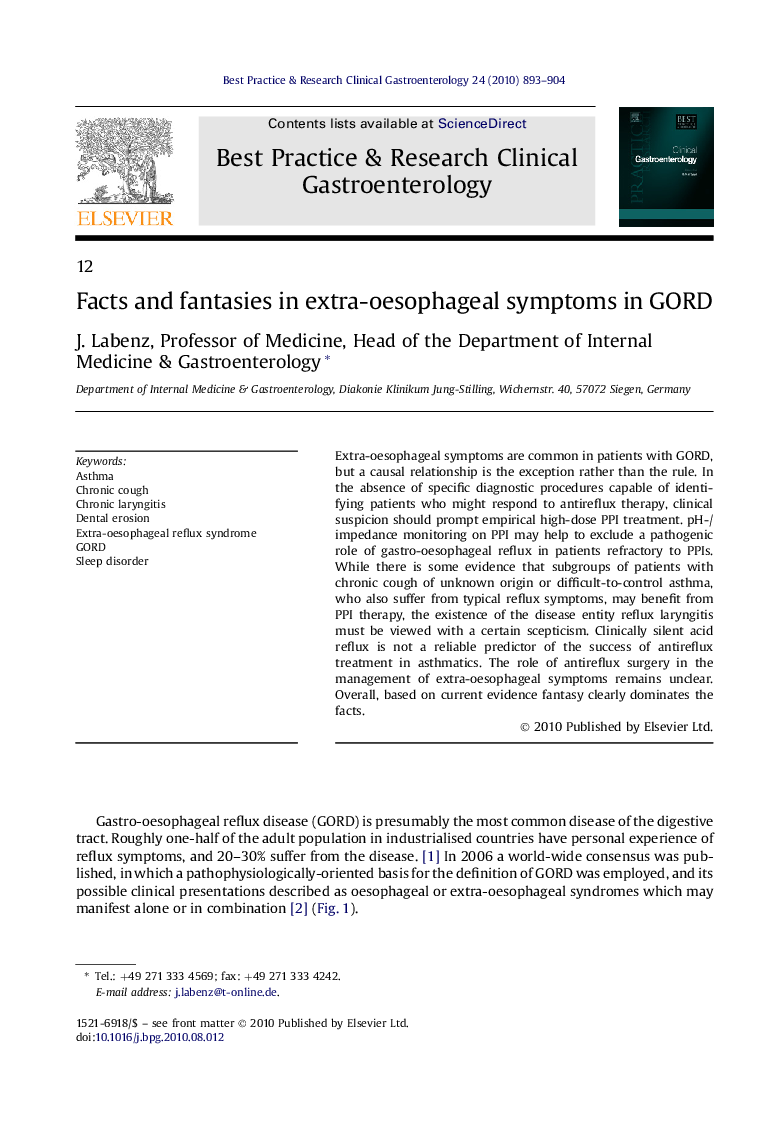| Article ID | Journal | Published Year | Pages | File Type |
|---|---|---|---|---|
| 3254382 | Best Practice & Research Clinical Gastroenterology | 2010 | 12 Pages |
Extra-oesophageal symptoms are common in patients with GORD, but a causal relationship is the exception rather than the rule. In the absence of specific diagnostic procedures capable of identifying patients who might respond to antireflux therapy, clinical suspicion should prompt empirical high-dose PPI treatment. pH-/impedance monitoring on PPI may help to exclude a pathogenic role of gastro-oesophageal reflux in patients refractory to PPIs. While there is some evidence that subgroups of patients with chronic cough of unknown origin or difficult-to-control asthma, who also suffer from typical reflux symptoms, may benefit from PPI therapy, the existence of the disease entity reflux laryngitis must be viewed with a certain scepticism. Clinically silent acid reflux is not a reliable predictor of the success of antireflux treatment in asthmatics. The role of antireflux surgery in the management of extra-oesophageal symptoms remains unclear. Overall, based on current evidence fantasy clearly dominates the facts.
